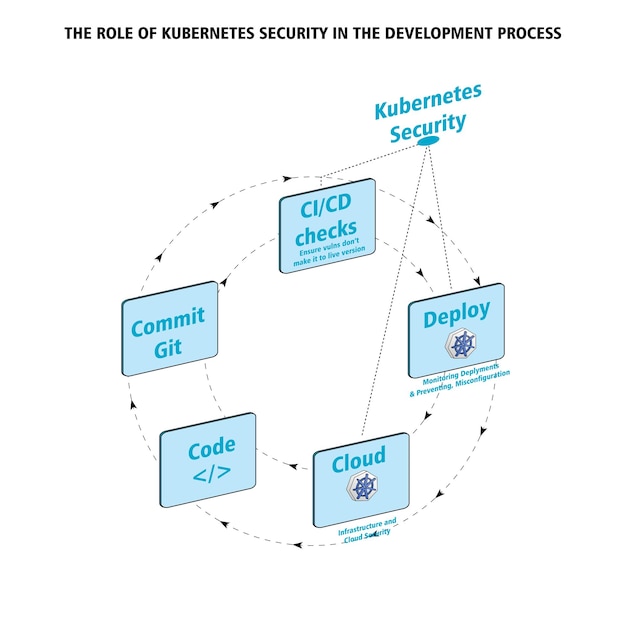AI’s Impact on US Job Market: Tech Skills in Demand for 2025

The rapid integration of AI into industries across the US is fundamentally reshaping the job market, creating an urgent demand for specialized tech skills like AI/ML engineering, data science, cybersecurity, and cloud computing by 2025, while automating repetitive tasks and driving a significant upskilling imperative for the workforce.
The landscape of the US job market is undergoing a seismic shift, driven by the relentless advancement and widespread adoption of artificial intelligence. Understanding the impact of AI on the US job market: which tech skills are in demand for 2025? is not merely an academic exercise but a critical imperative for professionals, educators, and policymakers alike.
The narrative of AI’s influence is complex, encompassing both unprecedented opportunities and significant challenges. While fears of job displacement are valid, a more nuanced perspective reveals a dynamic evolution where certain roles diminish, but new, high-value positions emerge, demanding a specialized skill set. This article delves into the core of this transformation, exploring the specific technological competencies that will define career success in the very near future.
The AI Revolution: Reshaping Industries and Job Functions
Artificial Intelligence is no longer confined to sci-fi novels or niche research labs; it is an pervasive force, embedded in everything from customer service chatbots to sophisticated financial algorithms and autonomous vehicles. Its integration across various sectors in the US has profound implications for how businesses operate and, consequently, for the nature of work itself.
This technological wave has dramatically altered traditional job functions, automating repetitive and predictable tasks, thereby freeing human workers to focus on more complex, creative, and strategic endeavors. This shift isn’t just about efficiency; it’s about fundamentally redefining productivity and value creation.
Automation vs. Augmentation: A Critical Distinction
It is crucial to differentiate between automation, where AI systems perform tasks independently, and augmentation, where AI tools enhance human capabilities. While some jobs are indeed susceptible to full automation, many more are being augmented, requiring employees to collaborate with AI, leveraging its analytical power and speed to achieve superior outcomes.
- Augmented decision-making: AI assists in processing vast datasets to inform human strategic choices.
- Enhanced productivity: AI tools streamline workflows, allowing humans to complete tasks faster and more accurately.
- Creative enablement: AI can generate preliminary concepts, allowing human creatives to refine and innovate.
- Improved safety: AI-powered systems can monitor hazardous environments, reducing human risk.
The distinction underscores why the future of work isn’t solely about robots replacing humans, but rather about a symbiosis between human ingenuity and artificial intelligence.
Looking ahead to 2025, the extent of AI’s penetration into everyday business practices will only deepen. Companies that effectively harness AI will gain competitive advantages, leading to an increased demand for professionals who can develop, deploy, and manage these sophisticated systems. This evolution necessitates a proactive approach from the workforce to acquire new skills aligned with these emerging needs.
Understanding the Shifting Demand: AI’s Direct Impact on Tech Roles
The direct impact of AI on the US job market is most acutely felt within the tech sector itself. While some entry-level coding and IT support roles might see reduced demand due to automation, the need for specialized roles in AI development, deployment, and management is skyrocketing. This creates a fascinating paradox: AI streamlines tech operations but simultaneously drives an immense demand for new tech expertise.
Organizations are not just seeking individuals who can use AI tools, but those who can build, optimize, and secure them. This emphasis on creation and oversight indicates a significant upskilling requirement for existing tech professionals and a clear path for newcomers.
AI/ML Engineering: The Architects of Intelligence
At the forefront of this demand are Artificial Intelligence and Machine Learning Engineers. These professionals are responsible for designing, building, and maintaining AI models and systems. Their work encompasses everything from data preprocessing and model development to deployment and ongoing optimization in real-world applications.
- Deep Learning Frameworks: Proficiency in TensorFlow, PyTorch, Keras.
- Machine Learning Algorithms: Understanding and implementing various supervised, unsupervised, and reinforcement learning techniques.
- Programming Languages: Strong command of Python, R, and Java.
- Model Deployment: Experience with deploying AI models into production environments and cloud platforms.
These roles require a blend of strong mathematical foundations, programming prowess, and an understanding of business problems that AI can solve. As AI becomes more integrated into core business functions, the demand for these “architects of intelligence” will only intensify.
Beyond engineering, roles such as AI Product Managers, who bridge the gap between technical teams and business objectives, and AI Ethicists, who ensure responsible and unbiased AI development, are also gaining prominence. This diversification reflects the growing maturity and complexity of the AI ecosystem.
Emerging Tech Skills for 2025: What the Market Demands

As we approach 2025, several tech skills are solidifying their position as highly sought-after capabilities, driven by the pervasive influence of AI. These are not merely buzzwords but practical competencies that directly address the evolving needs of businesses leveraging advanced technologies.
Successful professionals in the coming years will be those who can demonstrate a mastery of these areas, not just theoretically, but through practical application and problem-solving. This requires continuous learning and adaptability, as the technological landscape is in constant flux.
Data Science and Analytics: The Foundation of AI
Data is the lifeblood of AI, and thus, data scientists and analysts remain pivotal. These professionals collect, clean, analyze, and interpret large and complex datasets, extracting meaningful insights that feed into AI model development and strategic decision-making. Their ability to translate raw data into actionable intelligence is indispensable.
- Data modeling and architecture: Designing efficient data structures for AI applications.
- Statistical analysis: Applying advanced statistical methods to interpret data.
- Data visualization: Presenting complex data insights clearly and effectively.
- Big data technologies: Experience with Hadoop, Spark, Kafka, and related platforms.
The demand for data literacy extends beyond specialized data roles; it is becoming a foundational skill for many tech and even non-tech positions. Understanding how data is collected, processed, and used by AI systems is crucial for navigating the modern workplace.
Moreover, ethical considerations in data handling and privacy protocols are increasingly important, pushing demand for data governance expertise. As AI systems become more autonomous, ensuring data integrity and responsible use becomes a paramount concern.
Cybersecurity in an AI-Driven World: A Growing Imperative
As AI systems become more integrated into critical infrastructure and business operations, the cybersecurity landscape grows exponentially in complexity and vulnerability. AI itself presents a double-edged sword: it can be a powerful tool for enhancing security measures, but also a target for sophisticated attacks. This dual nature drives an unprecedented demand for cybersecurity professionals equipped to handle threats in an AI-driven environment by 2025.
The ability to secure AI models from adversarial attacks, protect AI-generated data, and defend against AI-powered hacking attempts will distinguish top-tier cybersecurity talent. This is no longer just about protecting traditional networks but safeguarding entire intelligent ecosystems.
AI-Enhanced Cybersecurity Skills
Traditional cybersecurity understanding needs augmentation with specific AI knowledge. Professionals must understand how AI can be leveraged for threat detection, anomaly identification, and automated response systems. Simultaneously, they must protect AI algorithms from manipulation or data poisoning.
- AI-driven Threat Detection: Experience using machine learning models to identify sophisticated cyber threats.
- Adversarial AI Defense: Knowledge of techniques to protect AI systems from targeted attacks that aim to corrupt or mislead them.
- Secure AI Development: Implementing security best practices throughout the AI development lifecycle, from data collection to model deployment.
- Data Privacy and Compliance: Expertise in regulations like GDPR and CCPA, particularly as they apply to AI data handling.
The convergence of AI and cybersecurity means that experts in this field will not only be defending systems but also designing systems that are inherently resilient to new forms of attack. The “human element” of cybersecurity, involving critical thinking and proactive threat hunting, becomes even more valuable when augmented by AI tools.
Furthermore, the ethical implications of using AI in cybersecurity, such as potential biases in threat assessment or surveillance, also necessitate a new breed of professionals who can navigate both technical and moral complexities.
Cloud Computing and MLOps: Scaling AI for Business
The true power of AI for large-scale enterprise use often comes from its deployment in cloud environments, necessitating robust cloud computing and Machine Learning Operations (MLOps) skills. As companies gather and process massive datasets and run complex AI models, the scalability, reliability, and security offered by cloud platforms become indispensable. By 2025, professionals who can seamlessly integrate AI workflows into cloud infrastructure will be in high demand.
MLOps bridges the gap between machine learning development and operations, ensuring that AI models are not only built effectively but also deployed, monitored, and maintained efficiently in production environments. This discipline is crucial for transforming experimental AI projects into stable, impactful business solutions.
Essential Cloud and MLOps Competencies
The convergence of cloud infrastructure and AI deployment creates a specialized demand for skills in managing the entire lifecycle of AI models within scalable, secure cloud ecosystems. This includes everything from infrastructure provision to performance monitoring.
- Cloud Platforms: Expertise in AWS, Azure, Google Cloud Platform, particularly their AI/ML services.
- Containerization & Orchestration: Proficiency with Docker and Kubernetes for managing application environments.
- CI/CD for ML: Designing and implementing continuous integration/continuous deployment pipelines for machine learning models.
- Model Monitoring & Management: Tools and techniques for tracking model performance, detecting drift, and orchestrating updates.
These skills ensure that AI solutions are not just theoretical constructs but practical, scalable applications that deliver continuous business value. Professionals adept in MLOps are essentially the engineers of the AI delivery pipeline, crucial for consistent performance and responsiveness.

The optimization of cloud resources for AI workloads, cost management, and ensuring data sovereignty in multi-cloud or hybrid environments also represent critical areas of expertise. Firms need professionals who can navigate these technical and strategic considerations to maximize their AI investments.
Soft Skills and Continuous Learning: The Human Element in an AI World
While technical prowess is undeniably crucial, the accelerating pace of AI integration emphasizes the enduring and growing importance of soft skills. In an AI-driven job market, where many routine tasks are automated, uniquely human attributes become more valuable. By 2025, the ability to adapt, innovate, and collaborate effectively with both human and AI counterparts will be paramount.
Emotional intelligence, critical thinking, and creativity are skills that AI currently struggles to replicate, making them definitive differentiators for human professionals. These are not merely “nice-to-have” attributes but fundamental requirements for navigating a dynamic and complex work environment.
Key Soft Skills for the Future Workforce
The emphasis on complex problem-solving and nuanced human interaction means that workers need to cultivate a strong foundation in interpersonal and analytical soft skills. These skills facilitate innovation and effective team dynamics in an increasingly automated world.
- Critical Thinking & Problem-Solving: Analyzing complex situations and developing innovative solutions, especially where AI outputs require human interpretation.
- Adaptability & Resilience: The capacity to learn new tools and embrace changing workflows, adjusting to rapid technological shifts.
- Creativity & Innovation: Generating novel ideas, designing new processes, and finding unique applications for AI technologies.
- Communication & Collaboration: Effectively conveying complex technical concepts to non-technical stakeholders and working seamlessly in diverse, often remote, teams.
Beyond these, ethical reasoning is emerging as a critical soft skill, especially for those involved in AI development and deployment. Understanding the societal implications of AI and ensuring its responsible use requires a strong moral compass and the ability to engage in complex ethical discussions.
The concept of “continuous learning” transforms from a career enhancement to a fundamental requirement. Professionals must commit to lifelong learning, constantly updating their technical and soft skills to remain relevant and competitive in a rapidly evolving job market. This proactive approach to skill development is the most reliable strategy for sustained career growth.
Preparing for 2025: Strategies for Workforce Development
Given the inexorable march of AI and its profound impact on the job market, proactive strategies for workforce development are absolutely essential. Governments, educational institutions, and individual professionals must collaborate to equip the current and future workforce with the skills needed for 2025 and beyond. Ignoring this imperative risks widening skill gaps and exacerbating economic disparities.
The focus must be on creating agile learning pathways that allow for rapid upskilling and reskilling. This includes not only technical training but also fostering the soft skills and critical thinking necessary to thrive alongside AI.
Educational and Training Initiatives
Traditional educational models need to be complemented by more flexible and responsive training programs. Short-term certifications, online courses, and apprenticeships can provide targeted skill development much faster than conventional degree programs.
- Micro-credentials & Bootcamps: Focused programs addressing specific, high-demand tech skills like AI/ML engineering or cloud security.
- Online Learning Platforms: Leveraging platforms like Coursera, edX, and Udacity for accessible, self-paced learning.
- Employer-Led Training: Companies investing in internal reskilling programs to prepare their existing workforce for AI-driven roles.
- STEM Education Reform: Enhancing K-12 and higher education curricula to emphasize computational thinking, data literacy, and AI fundamentals.
Public-private partnerships can play a crucial role in funding these initiatives and ensuring that the training provided is directly aligned with industry needs. This collaborative approach ensures that the supply of skilled workers meets the demand generated by AI innovation.
For individuals, cultivating a “growth mindset” and actively seeking out learning opportunities are key. Attending workshops, pursuing certifications, and engaging with online communities focused on AI and emerging technologies can provide a significant competitive edge.
| Key Point | Brief Description |
|---|---|
| 📊 AI/ML Engineering | Designing, building, and deploying AI models using frameworks like TensorFlow and PyTorch. |
| 🔒 Cybersecurity Skills | Protecting AI systems from adversarial attacks and leveraging AI for advanced threat detection. |
| ☁️ Cloud & MLOps | Managing AI lifecycle on cloud platforms, including deployment, monitoring, and scaling. |
| 🧠 Soft Skills & Learning | Critical thinking, adaptability, and continuous learning essential for human-AI collaboration. |
Frequently Asked Questions About AI’s Impact on the US Job Market
While AI will automate many routine tasks, leading to the displacement of some jobs, it is also expected to create a significant number of new roles, particularly in tech development, maintenance, and AI ethics. The overall impact is more about job transformation and skill shifts than mass elimination, though some sectors will feel greater pressure than others.
MLOps, or Machine Learning Operations, is a methodology for deploying and maintaining machine learning models in production reliably and efficiently. It’s crucial because it bridges the gap between ML development and IT operations, ensuring that AI solutions provide continuous business value. Professionals with MLOps skills are vital for scaling AI applications.
Start with foundational skills like data literacy, basic programming (e.g., Python), and statistics through online courses or bootcamps. Focus on roles that blend your existing domain knowledge with AI tools, such as AI product management or AI-assisted data analysis. Soft skills like critical thinking and adaptability are also highly valued.
Absolutely. While technical skills are essential for building and managing AI, soft skills such as critical thinking, creativity, adaptability, and ethical reasoning are increasingly vital. These human-centric abilities enable professionals to innovate with AI, solve complex problems that AI cannot, and effectively collaborate in evolving work environments.
By 2025, the top three tech skills in demand for AI are likely to be: AI/Machine Learning Engineering (for model development and deployment), Data Science and Analytics (for foundational data insights), and Cloud Computing with MLOps expertise (for scalable AI infrastructure and management). Cybersecurity skills are also critically important, especially within AI contexts.
Conclusion
The transformation of the US job market by artificial intelligence is undeniable and accelerating. By 2025, the demand for specialized tech skills in areas such as AI/ML engineering, advanced data science, robust cybersecurity, and cloud-based MLOps will be at an all-time high. However, this evolution is not solely about technical mastery; it equally emphasizes the crucial role of uniquely human soft skills like critical thinking, adaptability, and creativity. Professionals who proactively embrace continuous learning and develop a versatile skill set—blending technical knowledge with strong interpersonal and problem-solving abilities—will be best positioned to thrive in this new, dynamic landscape. The future of work is collaborative, merging human ingenuity with AI’s analytical power, and those prepared for this synergy will lead the way.





